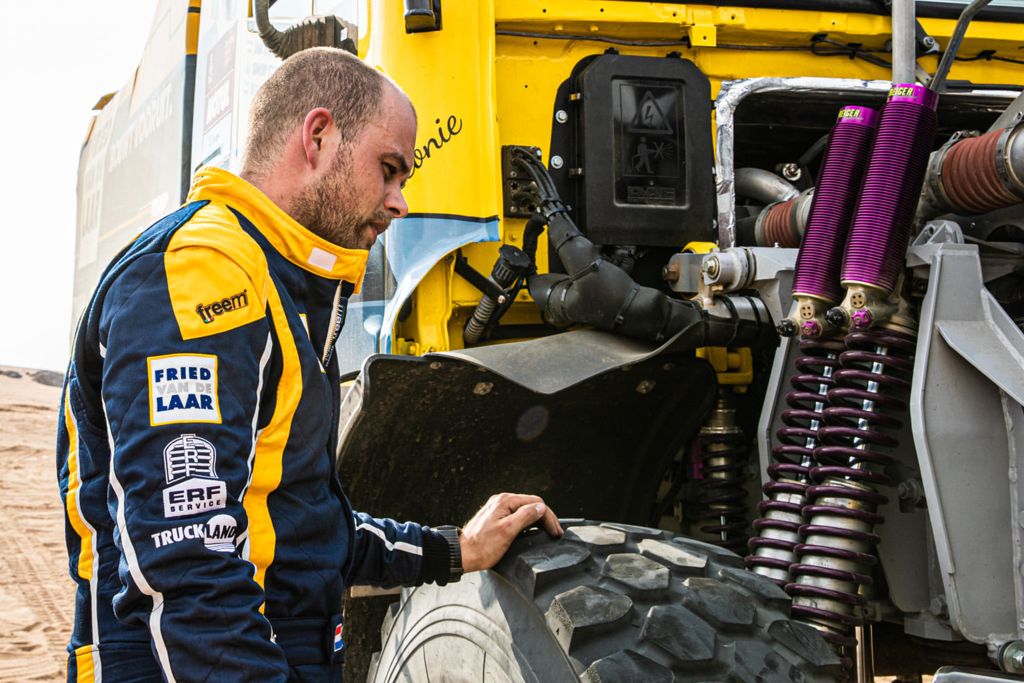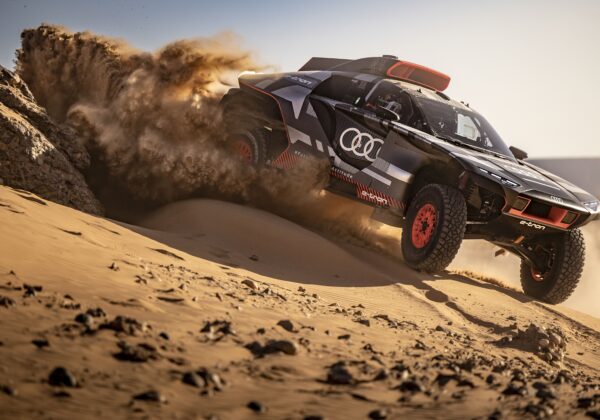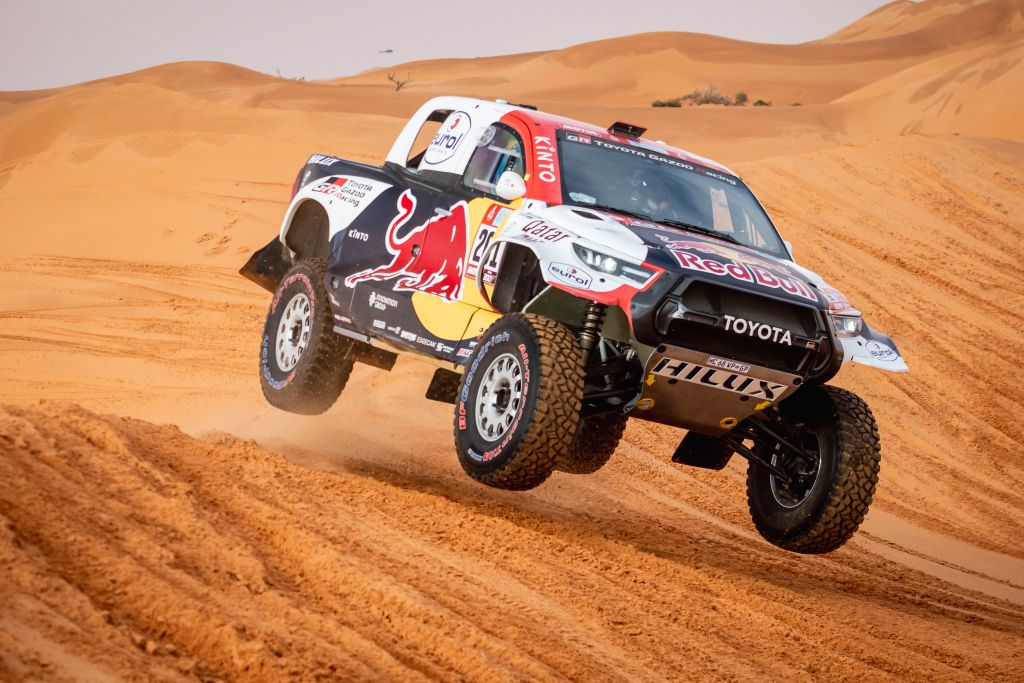
The pinnacle of off-road motorsport is and remains the Dakar Rally. Whether in the deserts of Africa, South America, or the Saudi Arabian Peninsula, no rally race is a tougher challenge.
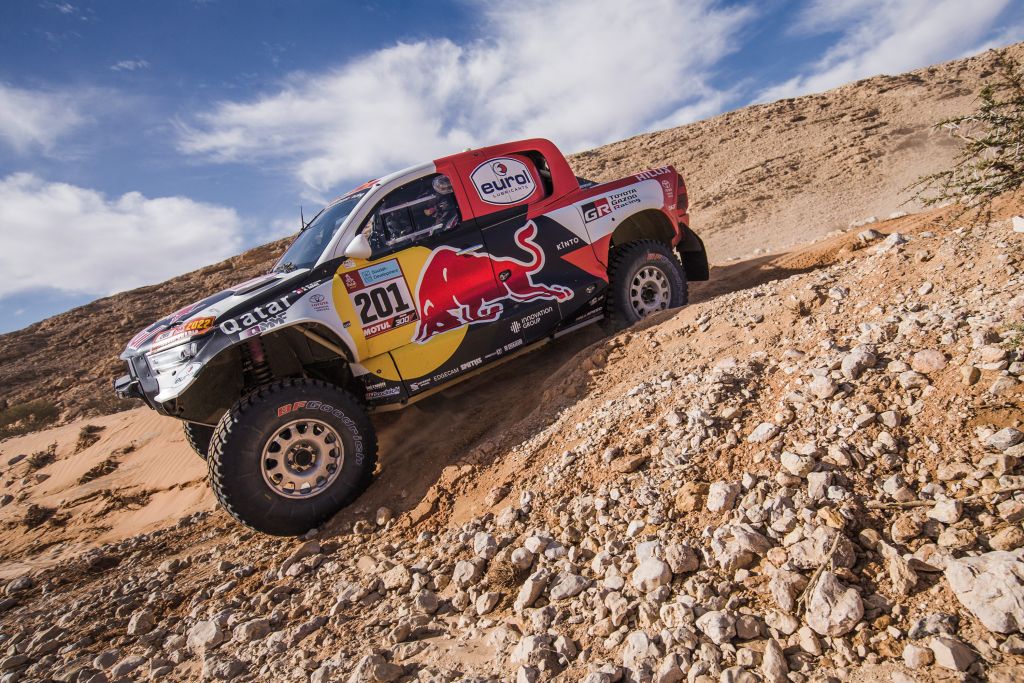
Like in previous years, Reiger rally customers are always at the front of the field at the Dakar. Our customers with dampers from the KW automotive brand Reiger Suspension were in first to sixth place in the overall rankings.
The Reiger customers ensured twelve stage victories in the “Cars” category alone. After a total distance of 8404 kilometers, Nassar Al-Attiyah celebrated with his co-driver Matthieu Baumel in the new Toyota Gazoo Racing Hilux pickup truck (#201).
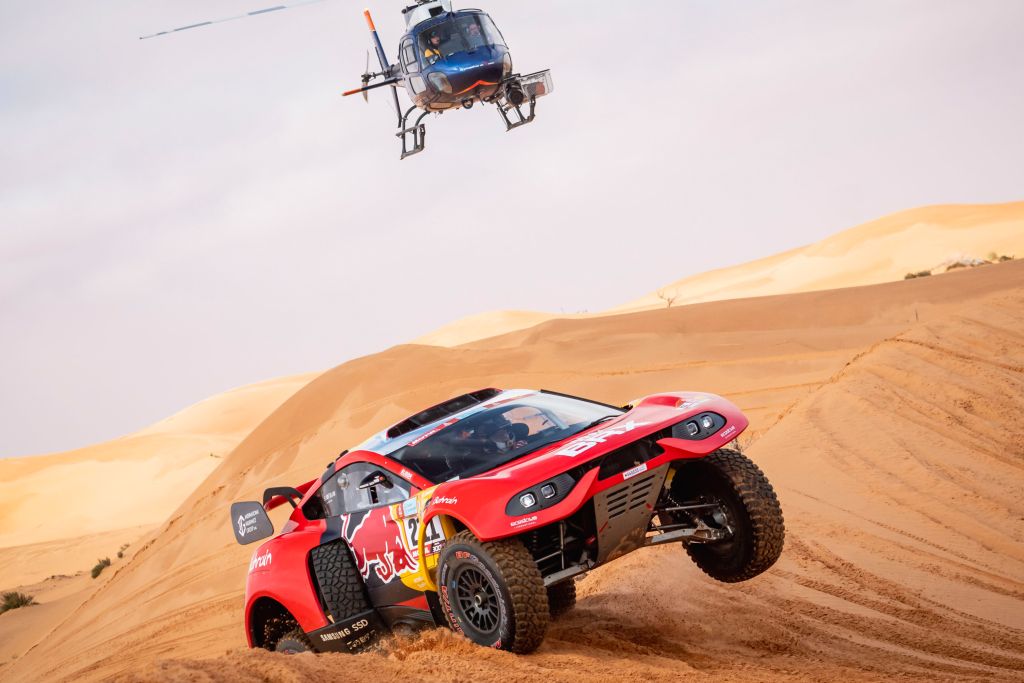
French Rally legend Sebastien Loeb and his teammate Fabian Lurquin were second in their #211 Bahrain Raid Extreme Prodrive BRX, followed by Saudi Arabia’s Yazeed Al-Rajhi and Britain’s Michael Orr in the #205 Overdrive Toyota in third position.
The fourth was Argentina’s Orlando Terranova with his navigator Daniel Oliveras Carreras from Spain (Bahrain Raid Extreme Prodrive BRX #221). South Africans Giniel de Villiers and Dennis Murphy in the Toyota Gazoo Racing Hilux Pickup (#207) finished fifth.
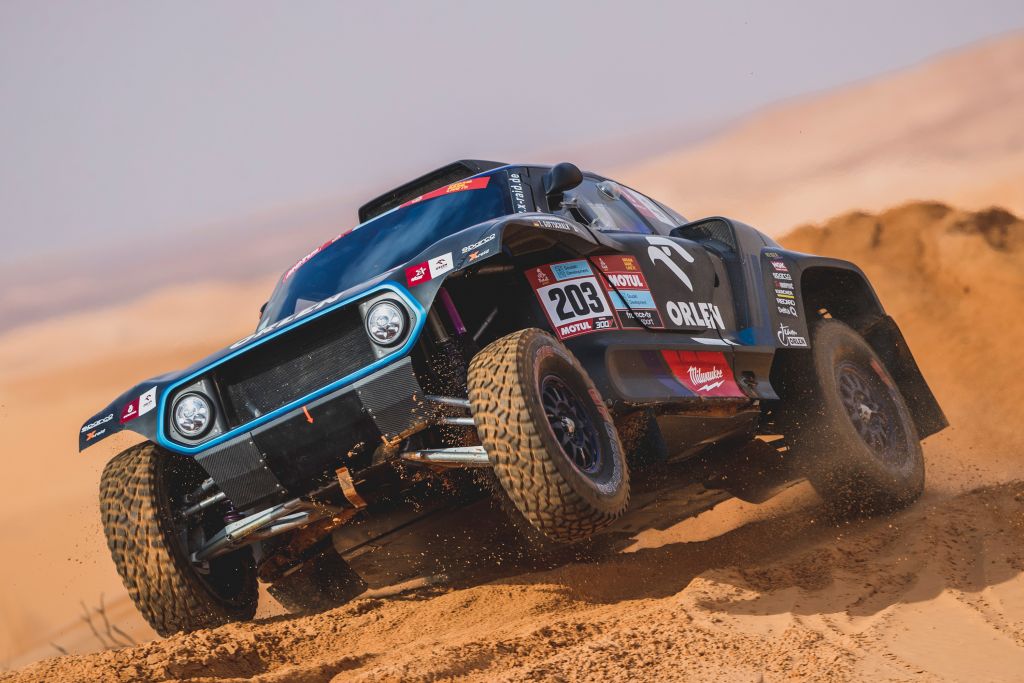
Jakub Przygonski from Poland with his German co-driver Timo Gottschalk in the X-Raid Mini JCW Team Mini (#203) finished sixth.
Motorsport at the limit is what the Dakar Rally is all about. But the Dakar often exceeds the limits of human and material endurance. So it’s no wonder that many automotive manufacturers and OEM suppliers undergo the ultimate endurance test for new developments in the deserts of Africa, South America and on the Saudi Arabian Peninsula.

The KW automotive group’s expertise is also in demand when car manufacturers dare to do something really great. At the Dakar Rally, Audi Sport used three Audi RS Q e-tron vehicles with electric drivetrains, all equipped with Reiger suspensions.
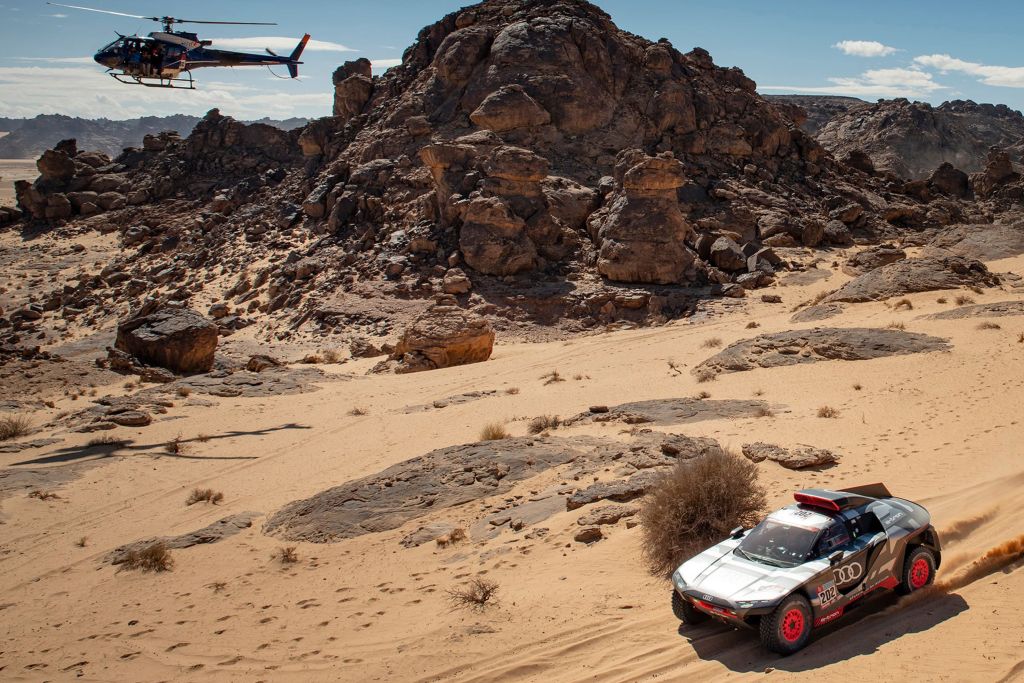
The hydraulic power steering in the RS Q e-tron is also an exclusive Reiger development for Audi Sport, as is the integrated hydraulic lifting system.
In the electric rally car, the front and rear axles are not mechanically connected. Each axle is powered by a so-called motor-generator unit (MGU) from the current Audi FE07. To recharge while driving, Audi Sport uses the efficient 2.0-liter TFSI engine from the Audi RS 5 DTM race car.
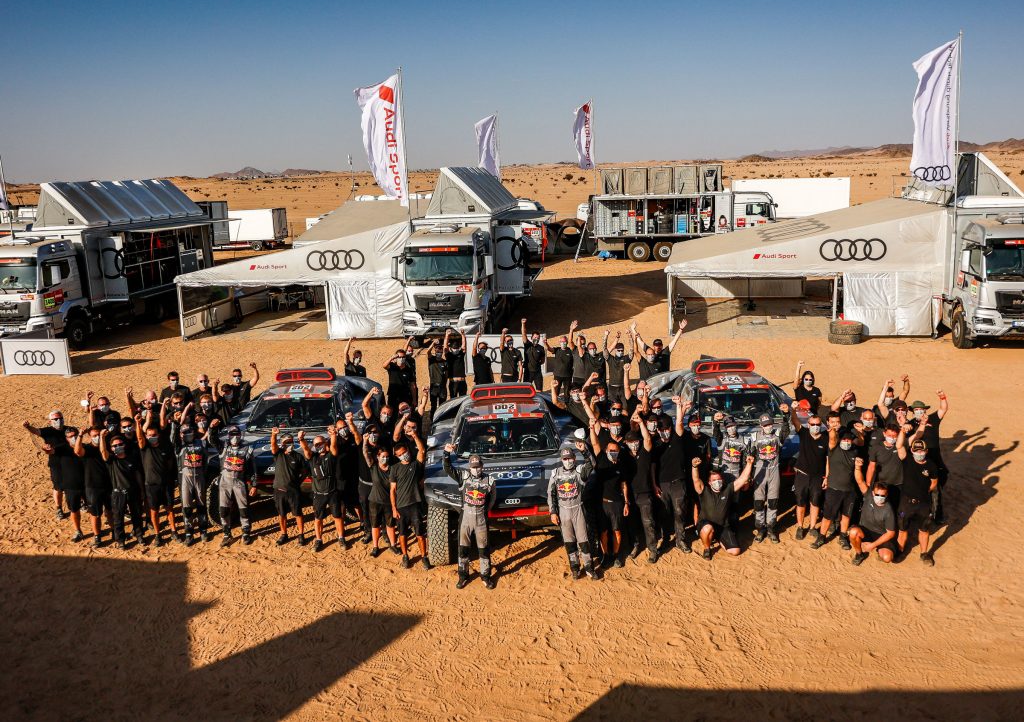
These three prototypes from Audi have already written motorsport history and set best times as the first real modern electric rally cars in the Dakar.
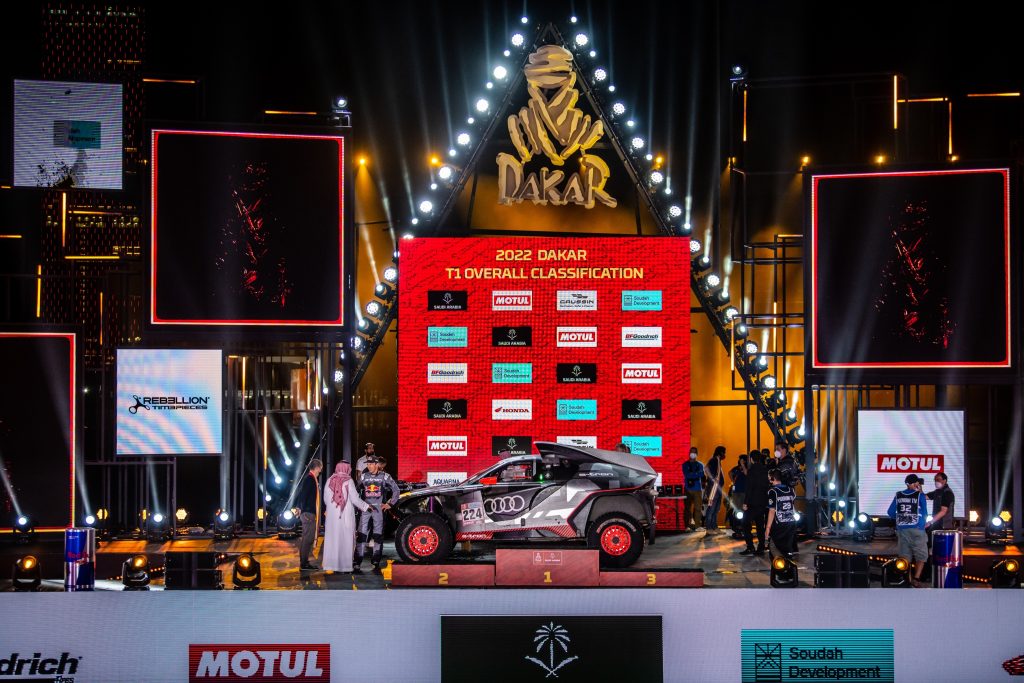
For instance, the Swedes Mattias Ekstrom and Emil Bergkvist crossed the finish line in ninth place overall. The Audi driver teams won four stages (T1-Ultimate class) and clinched 14 podium results in the one-day classifications. It was beyond the wildest expectations.
Reiger motorsport teams also win in trucks
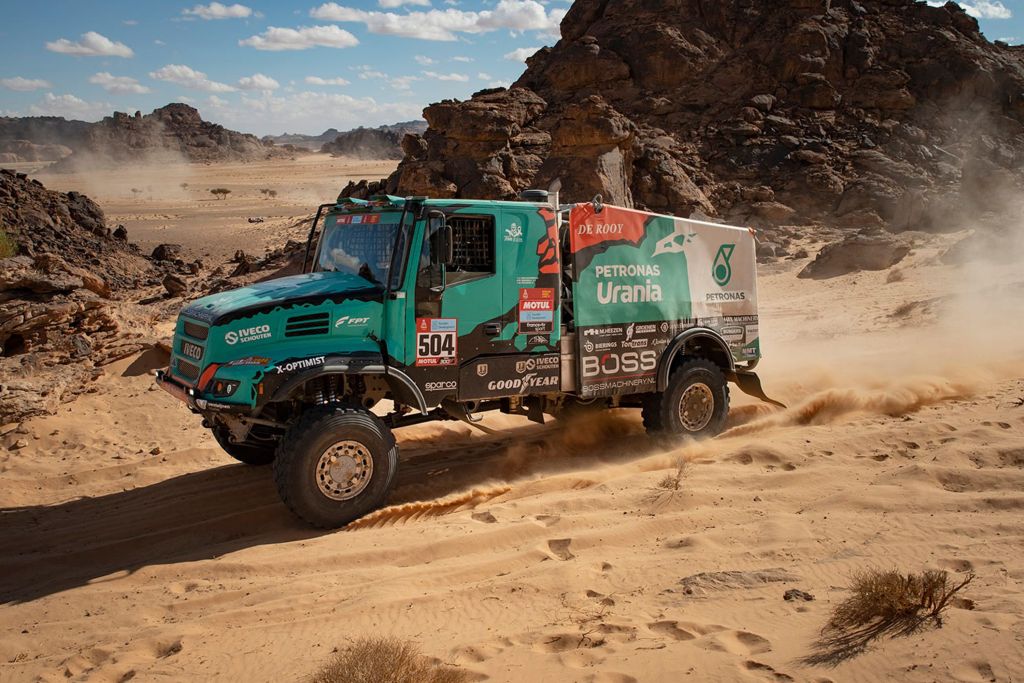
The Russian KAMAZ Master off-road trucks equipped with Reiger suspensions and the two Ivecos from Petronas Team de Rooy and Mammoet Rallysport Team de Rooy finished on all three podium places and in positions four to six in the Saudi Arabian port metropolis Jeddah.
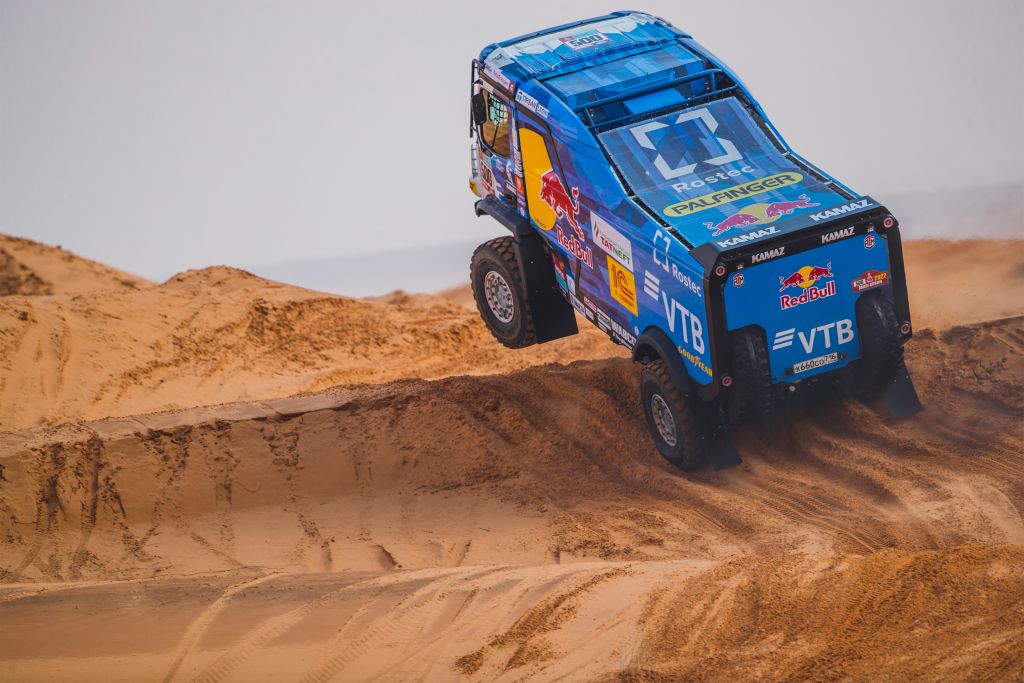
First place went to Dmitry Sotnikov (#500), second place went to Eduard Nikolaev (#505), Anton Shibalov (#501) was third and fourth place went to the fourth KAMAZ Master Truck with Andrey Karginov (#509).
The KAMAZ Master Trucks, which can reach speeds of up to 165 km/h, are special rally conversions with all-wheel drive from the Russian manufacturer Kamaz and weigh around 8,600 kilograms as a Dakar truck without fuel. The fuel tanks hold between 900 and 950 liters, depending on the version. The engine is an inline six-cylinder turbo diesel with an engine displacement of 12.95 liters.
